- Job roles offered by TCS
- Eligibility criteria for the TCS recruitment
- Application Process
- TCS hiring process and rounds of interviews
- TCS National Qualifier Test (NQT)
- Salaries offered
- About the company
- Ways to get into Amazon
- Eligibility criteria for the Amazon recruitment process
- Amazon Recruitment Process
- Salary at Amazon
- FAQs regarding the Amazon recruitment process
- Tips and Tricks from Amazon
- Ways to apply for the Wipro recruitment process
- Eligibility for Wipro recruitment process
- Wipro process for recruitment 2022 for freshers
- Salary structure at Wipro
- Why Wipro
- FAQs regarding the Wipro recruitment process
- About the company
- Ways to apply at PayPal
- Details of the selection process at PayPal
- Salary details of software developer at PayPal
- Tips from PayPal for a wonderful interview experience!
- About PayPal
- How to apply at Cisco?
- Eligibility criteria for freshers
- Profiles offered by Cisco for engineers
- Details of the Cisco recruitment process
- Salary offered by Cisco
- FAQs related to the Cisco recruitment process
- Tips that will help you stand out during the Cisco recruitment process
- Why Amdocs?
- Eligibility criteria for Amdocs recruitment process 2023
- Stages of the Amdocs recruitment process 2023
- Interview preparation tips for cracking the Amdocs recruitment process 2023
- Salary offered at Amdocs
- FAQs regarding Amdocs recruitment process 2023
- How to apply at Mindtree?
- Eligibility Criteria for MindTree Application Process 2022
- MindTree Recruitment Process 2022
- Salary offered at MindTree
- FAQs regarding MindTree recruitment
- About MindTree
- How to apply at Microsoft?
- Microsoft Recruitment and Interview Process
- Salary details of Software Engineers at Microsoft
- Points to remember for cracking Microsoft's hiring process
- FAQs regarding the Microsoft recruitment process
- About Microsoft
- Eligibility for Zoho recruitment for freshers
- How to apply?
- Zoho recruitment and interview process 2022
- FAQs regarding Zoho recruitment
- About Zoho
- Roles offered by Google
- How to apply at Google?
- Eligibility criteria for engineering freshers
- Google Recruitment Process for Engineers
- How to prepare for Google interview?
- Salary structure at Google for engineering positions
- FAQs regarding Google recruitment
- How To Get Into Goldman Sachs?
- Profiles offered by Goldman Sachs for Engineering candidates
- Details of the Rounds
- Salary offered by Goldman Sachs for Software Engineer profile
- FAQs regarding Goldman Sachs recruitment
- Deloitte Recruitment Process
- Overview of the Selection Process
- Deloitte Salary for Freshers
- About Deloitte
- Deloitte Recruitment Process: FAQs
- Roles offered by IBM for freshers
- How to apply at IBM?
- IBM recruitment process for freshers
- Syllabus for IBM recruitment process
- Eligibility criteria for IBM recruitment process
- Average salary of an entry-level SDE at IBM
- FAQs regarding IBM recruitment process
- About IBM
- Roles offered by Walmart Global Tech for Engineers
- How to apply for Walmart Global Tech recruitment?
- Walmart Global Tech application and recruitment process
- Eligibility for Walmart Global Tech recruitment process
- Salary offered to engineering freshers
- FAQs regarding Walmart application process
- Company Profile
- How to apply at Cognizant?
- Cognizant hiring channels
- Eligibility criteria for Cognizant recruitment
- Roles offered by Cognizant for entry-level positions
- Assessment process by Cognizant for entry-level positions
- Fresher salary at Cognizant
- FAQs regarding Cognizant application and selection process
- About Cognizant
- How to be a part of Tech Mahindra?
- Eligibility criteria for Tech Mahindra recruiting process
- Selection process at Tech Mahindra for BTech candidates
- Salary offered by Tech Mahindra to freshers
- FAQs related to Tech Mahindra recruitment
- About the company
- Roles Offered by Infosys
- Infosys Recruitment Process 2023: How to Apply?
- Infosys Recruitment 2023 Eligibility Criteria
- Infosys Recruitment Process 2023: Assessment Rounds
- Salaries Offered at Infosys
- Infosys Recruitment Process FAQs
- BYJU's Recruitment Process
- Eligibility Criteria
- How to apply?
- Skills required to get into BYJU's
- BYJU's BDM Salary
- BYJU's SDE Salary
- FAQs
- Accenture Recruitment Process Eligibility Criteria
- Accenture Recruitment Process 2024
- Pre-placement Talk
- Cognitive and Technical Assessment
- Coding Round
- Communication Assessment Round
- Accenture Interview Process
- System Requirements for Accenture Off-Campus Drive
- Accenture Off-Campus Drive Packages and Job Roles Offered
- Accenture Off-campus Drive Duration
- Accenture Off-campus Drive Difficulty
- Key Points to Remember
- About Capgemini
- Pattern & Stages for Capgemini Job Preparation
- Comprehensive Capgemini Exam Syllabus
- Strategies & Tips for Capgemini Job Preparation
- Conclusion
- Frequently Asked Questions (FAQs)
- About HCL Tech
- Job Roles Offered
- HCL Tech Recruitment Process
- Salary Offered
- Eligibility Criteria
- Documents Required
- HCL Recruitment Policies
- Career opportunities offered by HSBC
- HSBC Recruitment Process: How to Apply?
- HSBC Recruitment Process: Eligibility Criteria and Timeline
- HSBC Recruitment Process for Software Engineers
- Salaries offered for Trainee Software Engineer roles
- FAQs regarding HSBC Recruitment Process
- Why HSBC
- Mphasis Recruitment Process for Engineering Roles: Eligibility Criteria
- Mphasis Recruitment Process: How to Apply?
- Mphasis Recruitment Process For Engineering Job Role
- Salary offered for Associate Software Engineer
- Frequently Asked Questions Regarding Mphasis Recruitment Process
- How to Apply for SDE Roles at PwC?
- Eligibility Criteria for SDE Roles at PwC
- Recruitment Steps for SDE Roles at PwC
- Salary for SDE Profiles at PwC
- Important Questions for the Interview Round in the PwC Recruitment Process
- FAQs
- Tips and Tricks
- Why PwC?
- How to Apply for SDE Roles at Samsung?
- Eligibility Criteria for Engineering Freshers
- Recruitment Steps For Engineering Freshers
- Salary for the SDE Roles
- FAQs for Samsung Recruitment Process
- Virtusa Job Roles
- Virtusa Eligibility Criteria
- How To Apply For Virtusa Recruitment Process 2023
- Virtusa Recruitment Process 2023: Details
- Virtusa Recruitment Process 2023: Salary Expectations
- Skills/ Traits For Virtusa Recruitment Process 2023
- Virtusa Recruitment Process 2023: Documents
- About Virtusa Corporation
- How to Apply for SDE Roles at Reliance Jio?
- Eligibility Criteria for Engineering Freshers
- Recruitment Steps For Engineering Freshers
- Salary for the SDE Roles At Reliance Jio
- FAQs for Reliance Jio Recruitment Process
- Tips and Tricks for the Reliance Jio Recruitment Process
- How to Apply for SDE Roles at Airtel?
- Eligibility Criteria for Engineering Freshers
- Different Stages in the Airtel Recruitment Process
- Salary for the SDE Roles At Airtel
- Frequently Asked Questions
- Why Airtel?
- PhonePe Recruitment Roles
- Eligibility for PhonePe Recruitment Process
- PhonePe Recruitment Process: How to Apply?
- Phonepe Recruitment Process: Details
- Salary Expectations- PhonePe Recruitment Process
- Skills Needed For PhonePe Recruitment Process
- About PhonePe Company
- Bosch Recruitment Process: Modes of selection
- Eligibility for Bosch Recruitment Process
- Overview of the Bosch Recruitment Process
- Salary Offered By Bosch For Software Engineering Profiles
- FAQs regarding Bosch Recruitment Process
- Mercedes Benz: Job Roles
- Mercedes Benz Recruitment Process: Eligibility Criteria
- How To Apply For the Mercedes Benz Recruitment Process
- Mercedes Benz Recruitment Process: Details
- Mercedes Benz Recruitment Process: Salary Expectations
- Skills To Highlight In Mercedes Benz Recruitment Process
- Tips to Crack Mercedes Benz Recruitment Process
- About Mercedes Benz India
- How to apply for SDE roles in the Apple recruitment process?
- Eligibility criteria for SDE Roles at the Apple recruitment process
- Steps for Apple recruitment process for SDE Roles
- Salary for SDE Profiles in the Apple recruitment process
- FAQs for Apple recruitment process
- Why Apple?
- How to Apply for SDE Roles at EY?
- Eligibility Criteria for Engineering Freshers in the EY recruitment process
- Different Stages in the EY Recruitment Process
- Salary for the SDE Roles At EY
- FAQs for EY Recruitment Process
- Why EY?
- Types of Job Roles at KPMG
- Eligibility Criteria For KPMG Recruitment Process
- How to Apply for KPMG Recruitment Process
- KPMG Recruitment Process - Rounds
- KPMG Recruitment Process: Salary Expectations
- KPMG Behavioral Capabilities
- Skills For KPMG Software Engineering Roles
- KPMG - About the Company
- Engineering job profiles at Oracle
- Oracle Recruitment Process: Eligibility criteria
- Oracle Recruitment Process: Details
- Salary offered by Oracle
- Why Oracle?
- How to Apply for SDE Roles at American Express?
- Eligibility Criteria for SDE Roles at American Express
- Recruitment Steps for SDE Roles at American Express
- Salary for SDE Profiles at American Express
- FAQs for American Express Recruitment Process
- Why American Express?
- Eligibility criteria for the NTT Data recruitment process
- Overview of the NTT Data Recruitment Process
- Salary offered by NTT Data to Engineering Graduates
- FAQs regarding NTT Data Recruitment
- Why NTT Data?
- Freshworks Recruitment Process 2023: Eligibility Criteria
- How to Apply for Freshworks Recruitment Process
- Freshworks Recruitment Process: Rounds
- Freshworks Recruitment Process: Salary Details
- Desired Skills for Freshworks Software Engineer Roles
- About Freshworks
- OYO Recruitment Process: Eligibility and Timeline
- OYO Recruitment Process: Details of the Rounds
- Salary offered by OYO for Engineering profiles
- Tips for nailing the technical and HR interviews
- How to Apply for SDE Roles at EPAM?
- Eligibility Criteria for SDE Roles in the EPAM Recruitment Process
- Steps for SDE Roles in the EPAM Recruitment Process
- Salary for SDE Profiles at EPAM
- FAQs for the EPAM Recruitment Process
- Why EPM?
- Eligibility Criteria for Nagarro
- How to Apply for Nagarro Recruitment Process?
- Nagarro Recruitment Process: Details of Rounds
- Nagarro Recruitment Process: Salary For SDE Profile
- About Nagarro
- How to Apply for SDE Roles at DXC?
- Eligibility Criteria for Engineering Freshers in the DXC Recruitment Process
- Different Stages in the DXC Recruitment Process
- Salary for the SDE Roles at DXC
- FAQs for the DXC Recruitment Process
- Why DXC?
- How to Apply for SDE Roles at Siemens?
- Eligibility Criteria for Engineering Freshers in the Siemens Recruitment Process
- Different Stages in the Siemens Recruitment Process
- Salary for the SDE Roles At Siemens
- FAQs for the Siemens Recruitment Process
- Why Siemens?
- Eligibility Criteria for Dell Recruitment
- How to Apply for Dell Recruitment Process?
- Dell Recruitment Process: Round Details
- Dell Recruitment Process: Salary Details
- Tips to Crack Dell Recruitment
- Some Common Interview Questions You Must Practice
- About Dell Technologies Inc.
- Adobe Recruitment Process: Eligibility criteria and other details
- Adobe Recruitment Process: Overview of the rounds
- Salary offered by Adobe
- FAQs regarding Adobe Recruitment Process
- Why Adobe?
- Citibank Recruitment Process: All you need to know
- Salary offered by Citibank
- Why should you join Citibank?
- Eligibility Criteria for Swiggy Recruitment Process
- How To Apply For Swiggy Recruitment Process
- Swiggy Recruitment Process: Rounds Overview
- Swiggy Recruitment Process: Salary Details
- Swiggy Recruitment Process: FAQs
- About Swiggy
- How to Apply for SDE Roles at D.E. Shaw?
- Eligibility Criteria for Engineering Freshers in the D.E. Shaw Recruitment Process
- Different Stages in the D.E. Shaw Recruitment Process
- Salary for the SDE Roles At D.E. Shaw
- FAQs for D.E. Shaw Recruitment Process
- Why D.E. Shaw?
- DeltaX Recruitment Process: How to Apply?
- DeltaX Recruitment Process: Rounds Overview
- Salary Structure at DeltaX
- FAQs regarding DeltaX Recruitment Process
- About DeltaX
- How to Apply for SDE Roles at Hewlett Packard Enterprise?
- Eligibility Criteria for Engineering Freshers in the Hewlett Packard Enterprise Recruitment Process
- Different Stages in the Hewlett Packard Enterprise Recruitment Process
- Salary for the SDE Roles At Hewlett Packard Enterprise
- FAQs for Hewlett Packard Enterprise Recruitment Process
- Why Hewlett Packard Enterprise?
- How to Apply for SDE Roles at Gainsight?
- Eligibility Criteria for Engineering Freshers in the Gainsight Recruitment Process
- Additional Eligibility Criteria
- Different Stages in the Gainsight Recruitment Process
- Salary for the SDE Roles At Gainsight
- FAQs for Gainsight Recruitment Process
- Eligibility Criteria For Morgan Stanley Recruitment Process
- How To Apply?
- Morgan Stanley Recruitment Process: Rounds Details
- Morgan Stanley Recruitment Process: Salary Details
- Tips To Crack Morgan Stanley Interviews
- About Morgan Stanley
- Eligibility Criteria For JP Morgan Recruitment Process
- How To Apply For a Job At JP Morgan?
- JP Morgan Recruitment Process: Rounds Overview
- JP Morgan Recruitment Process: Salary Details
- Tips To Prepare Your Resume
- Tips To Prepare For JP Morgan Recruitment Process- Interviews
- About JP Morgan
- Salesforce Recruitment And Selection Process: How to Apply?
- Salesforce Recruitment and Selection Process: Rounds Overview
- Salary offered by Salesforce
- FAQs related to Salesforce Recruitment and Selection Process
- Eligibility Criteria For Kaar Technologies Recruitment Process
- How To Apply For Job At Kaar Tech?
- Rounds In Kaar Technologies Recruitment Process
- Kaar Technologies Recruitment Process: Salary Details
- About Kaar Technologies
- Eligibility Criteria for Engineering Freshers in the ValueLabs Campus Recruitment Process
- Different Stages in the ValueLabs Campus Recruitment Process
- Salary for the SDE Roles At ValueLabs
- FAQs for ValueLabs Campus Recruitment Process
- How to Apply for SDE Roles at Hitachi Consulting?
- Eligibility Criteria for Engineering Freshers in the Hitachi Consulting Recruitment Process
- Different Stages in the Hitachi Consulting Recruitment Process
- Salary for the SDE Roles At Hitachi Consulting
- How to Apply for SDE Roles at Juspay?
- Eligibility Criteria for Engineering Freshers in the Juspay Recruitment Process
- Different Stages in the Juspay Recruitment Process
- Salary for the SDE Roles At Juspay
- Eligibility and Timeline for Software Engineers
- Rounds details
- Salary offered by Thoughtworks
- Prep tips for Thoughtworks recruitment process
- How to Apply for SDE Roles at Standard Chartered Bank?
- Eligibility Criteria Details for Engineering Freshers in the Standard Chartered Bank Recruitment Process
- Different Stages in the Standard Chartered Bank Recruitment Process
- Salary for the SDE Roles at Standard Chartered Bank
- FAQs for Standard Chartered Bank Recruitment Process
- Eligibility Criteria For Saint Gobain Recruitment Process
- Ways To Apply For Saint Gobain Jobs?
- Saint Gobain Recruitment Process: Rounds Overview
- Saint Gobain Recruitment Process: Salary Details
- About Saint Gobain
- How to Apply for SDE Roles at Paytm?
- Eligibility Criteria for Engineering Freshers in the Paytm Recruitment Process
- Different Stages in the Paytm Recruitment Process
- Salary for the SDE Roles at Paytm
- FAQs for the Paytm Recruitment Process
- Uber Recruitment Process: Eligibility and Timeline
- Uber Recruitment Process: Details of the Rounds
- Salary offered by Uber
- Tips to nail the Uber recruitment process
- Eligibility Criteria For Intuit Recruitment Process
- Modes Of Application
- The Rounds In Intuit Recruitment Process
- Intuit Recruitment Process: Salary Details
- Some Common HR Interview Questions
- About Intuit Inc.
- How to Apply for Engineering Roles at Razorpay?
- Eligibility Criteria for Engineering Freshers in the Razorpay Recruitment Process
- Additional Eligibility Criteria
- Different Stages in the Razorpay Recruitment Process
- Salary for the Engineering Roles At Razorpay
- FAQs for the Razorpay Recruitment Process
- How to Apply for Engineering Roles at Netflix?
- Eligibility Criteria for Engineering Freshers
- Recruitment Stages For Engineering Freshers
- Salary for the Technical Roles At Netflix
- FAQs for Netflix Recruitment Process
- Tips and Tricks for the Netflix Recruitment Process
- How to Apply for Engineering Roles at the Intel Recruitment Process?
- Eligibility Criteria for Engineering Freshers
- Recruitment Stages For Engineering Freshers
- Salary for the Technical Roles At Intel
- How to Apply for Engineering Roles in the Airbus Recruitment Process?
- Eligibility Criteria for Engineering Freshers in the Airbus Recruitment Process
- Recruitment Stages in the Airbus Recruitment Process
- Salary for the Technical Roles At Airbus
- FAQs for the Airbus Recruitment Process
- Atlassian Recruitment Process: Eligibility and Stages
- Atlassian Salary Structure for Engineering Profiles
- Frequently Asked Questions
- How to Apply for SDE Roles at Optum?
- Eligibility Criteria for engineering freshers in the Optum Recruitment Process
- Different Stages in the Optum Recruitment Process
- Salary for the SDE Roles At Optum
- FAQs for Optum Recruitment Process
- Why Optum?
Understand Oracle Recruitment Process (2026) Step By Step!
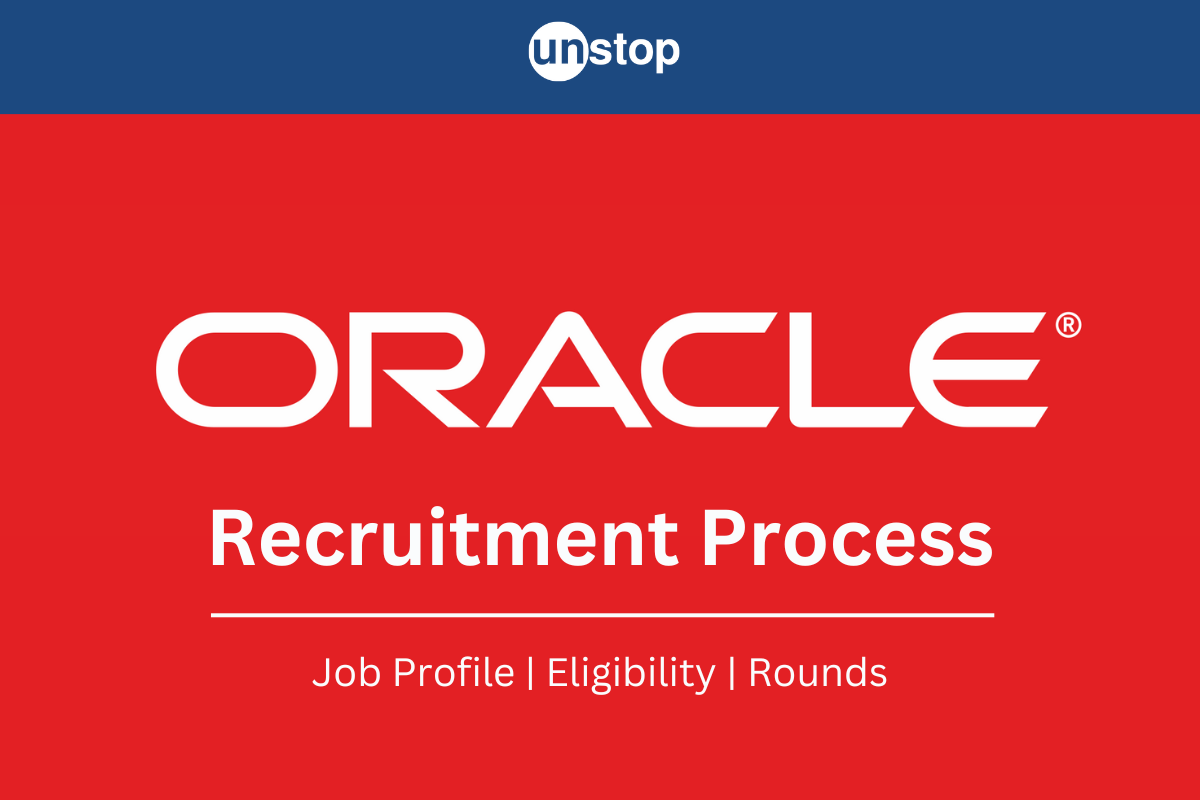
Oracle Corporation is an American multinational company with headquarters in Austin, Texas. Established in 1977, the company is engaged with database software and technology, cloud-engineered systems, enterprise software products, human capital management software, customer relationship management, supply chain management software, and more. Oracle ranks 4th in the 2019 Forbes list for the 'Software & Programming' industry in terms of market capitalization. Considering the stronghold of Oracle in the IT domain, engineers play a crucial role in the company. If you want to get a job at Oracle, understanding the Oracle recruitment process is extremely important. In this article, we will take you through the entire process to give you a good understanding of all the steps involved.
Each year Oracle conducts off-campus and on-campus recruitment drives to hire engineers for various profiles apart from accepting online applications. So, before we go deep into the Oracle recruitment process, let's take a look at the various engineering job profiles that are available at Oracle.
Engineering job profiles at Oracle
| Job Profile | Responsibilities |
| Back-end Developer | Develop large-scale database-as-a-service offerings for public and private clouds. Use systems knowledge to the architecture, design, prototyping, and development of Oracle Database on cloud releases. |
| Full-stack Developer | Use your Java and JavaScript expertise to design and develop features for Oracle Cloud. Design, prototype, and develop user interface, along with the REST APIs and back end. |
| Front-end Developer | Design, develop, and deliver Oracle Database on public cloud platforms using strong knowledge in core Java and J2EE-related technologies. |
| Systems Programmer | Work with C or C++ and Unix internals proficiency and experience working with low-level systems software to the design of next-gen technology that scales in a cloud-first world. |
| DevOps | Automate and streamline processes, build and maintain deployment tools, and troubleshoot and resolve issues. |
| Software Developer | Define and develop software for tasks associated with the developing, designing, and debugging of software applications or operating systems. |
| Engineering Manager | Lead high-growth teams on ambitious new initiatives across the architecture, design, prototyping, and development of our database on cloud releases. |
The diverse profiles provide a vast range of opportunities for the candidates to choose from. Thus, candidates applying through online job applications can assess their skills or expertise and accordingly apply for the relevant profile.

Oracle Recruitment Process: Eligibility criteria
In order to participate in the Oracle hiring process, the candidate has to meet the following eligibility criteria:
- B.Tech or M.Tech in any engineering stream
- Minimum 60% marks in graduation as well as 10th and 12th standards
- No active backlogs are allowed
Eligible candidates can apply for the Oracle recruitment process through any of the available modes. The timeline may vary from candidate to candidate.
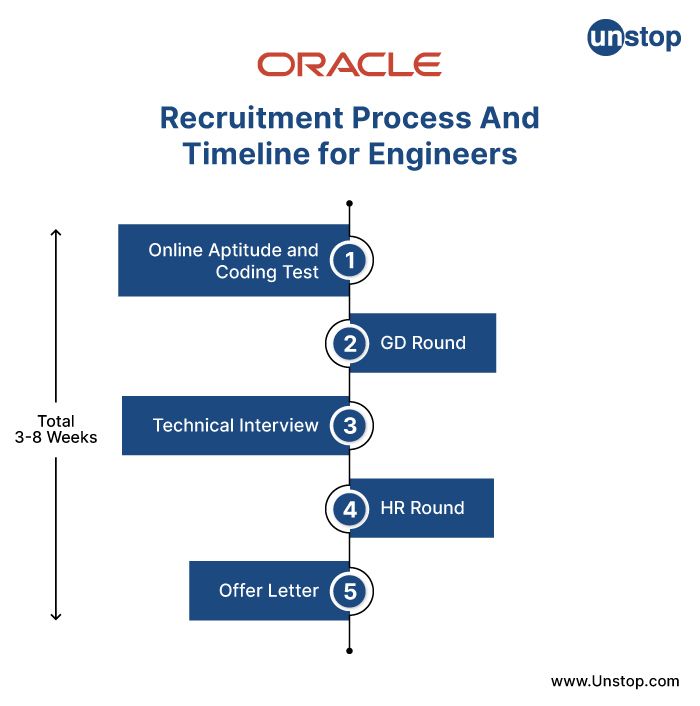
Oracle Recruitment Process: Details
Oracle conducts 3-4 rounds to select freshers for computer science-related roles. The process may slightly differ for off-campus and on-campus drives. However, generally, the Oracle recruitment process includes the following:
- Online MCQs and Coding Tests
- Group Discussion Round
- Technical Interview Round
- HR Interview Round
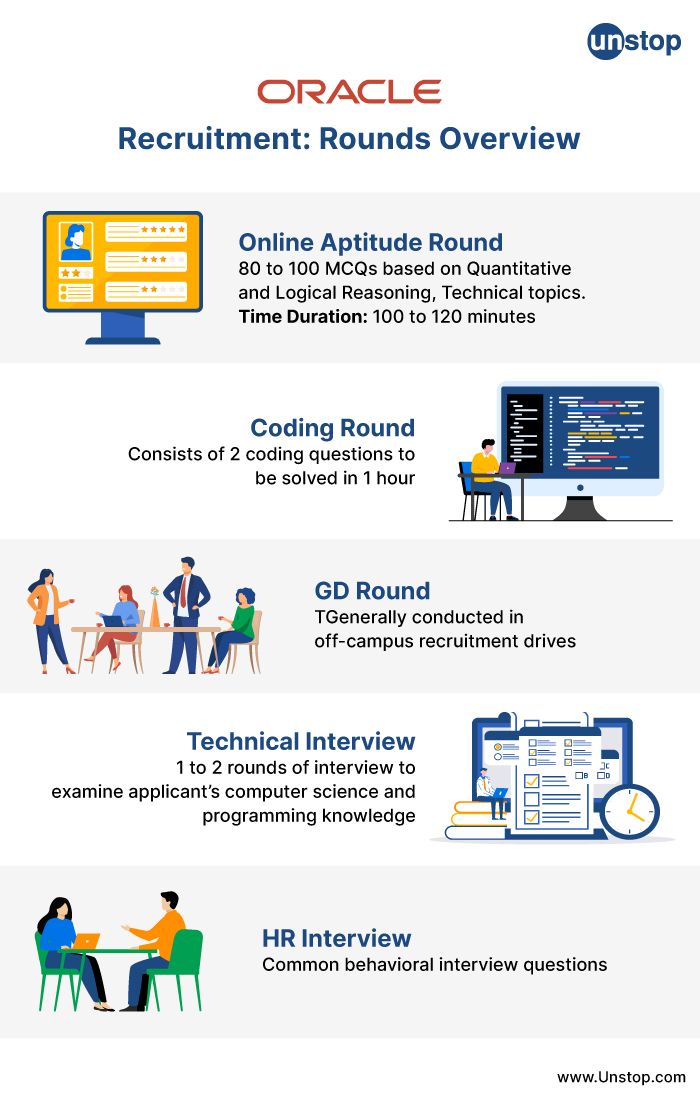
Here are the details of each stage that the candidate has to go through:
1. Online MCQs and Coding Round: This round assesses the general aptitude, logical reasoning, verbal ability, technical knowledge, and coding skills of the candidate. The technical questions are mostly based on data structures, Database Management Systems, time complexity, operating systems, etc. The coding test is generally an hour-long test with 2 coding questions. One can use any of the three programming languages - C, C++, and Java.
2. Group Discussion Round: This round may be often skipped. It is generally conducted in off-campus placement drives. However, since the final format of the Oracle recruitment process solely depends on the discretion of the company, it is always good to keep oneself prepared for the GD round as well. The objective of this round is to test the communication skills and general awareness of the candidate.
3. Technical Interview: One or two technical interview rounds are conducted to select the candidate for the final stage. Questions asked are related to projects done in the past, Python, Java, Data structures, Linked List, etc. The candidate may be asked to solve codes on the paper.
4. HR Interview Round: The HR interview round includes general behavioral interview questions intended to assess the communication and interpersonal skills of the candidates along with their important personality traits.
Want to have a smooth HR interview experience? Here are some tips.
Salary offered by Oracle
Here are the salary details for Engineering roles.
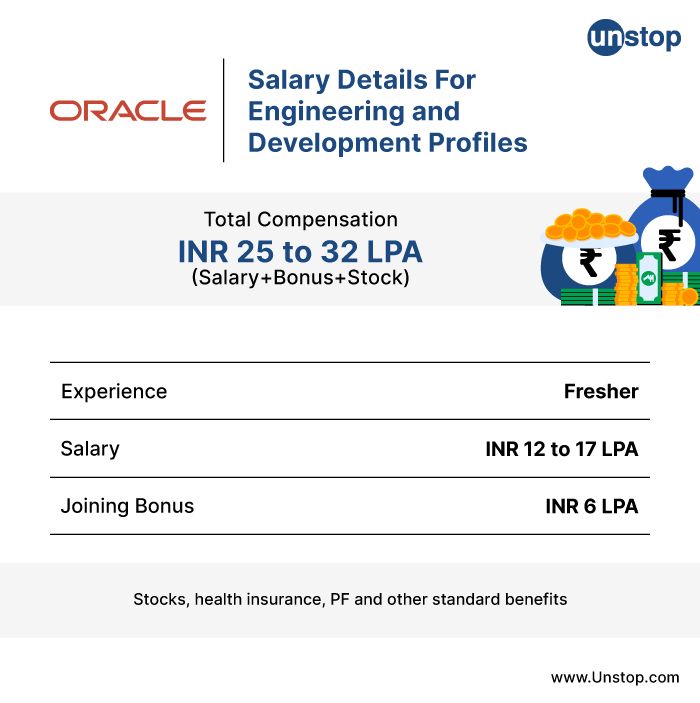
Why Oracle?
Oracle is the second-largest software maker and is considered one of the best workplaces for innovators. Over the last 40 years, the company has delivered critical solutions to businesses with over 48,000 engineers and developers in its workforce. For its employees, Oracle offers a place where everyone can grow. With a variety of professional training programs and employee benefits, the company provides an environment where one can strive for professional growth as well as lead a balanced life.
Geared up to be a part of Oracle? We hope the article helped you get an overview of the Oracle recruitment process. For more such articles, stay tuned to Unstop!
Looking for the perfect JOB or INTERNSHIP? Apply Now!
You may also like to read:
As a biotechnologist-turned-writer, I love turning complex ideas into meaningful stories that inform and inspire. Outside of writing, I enjoy cooking, reading, and travelling, each giving me fresh perspectives and inspiration for my work.
Login to continue reading
And access exclusive content, personalized recommendations, and career-boosting opportunities.
Subscribe
to our newsletter











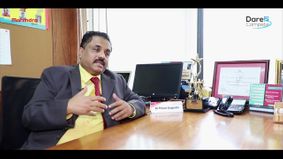

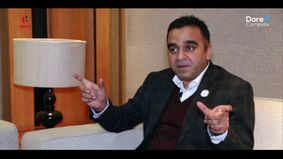
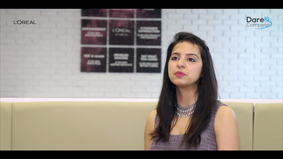
Comments
Add comment